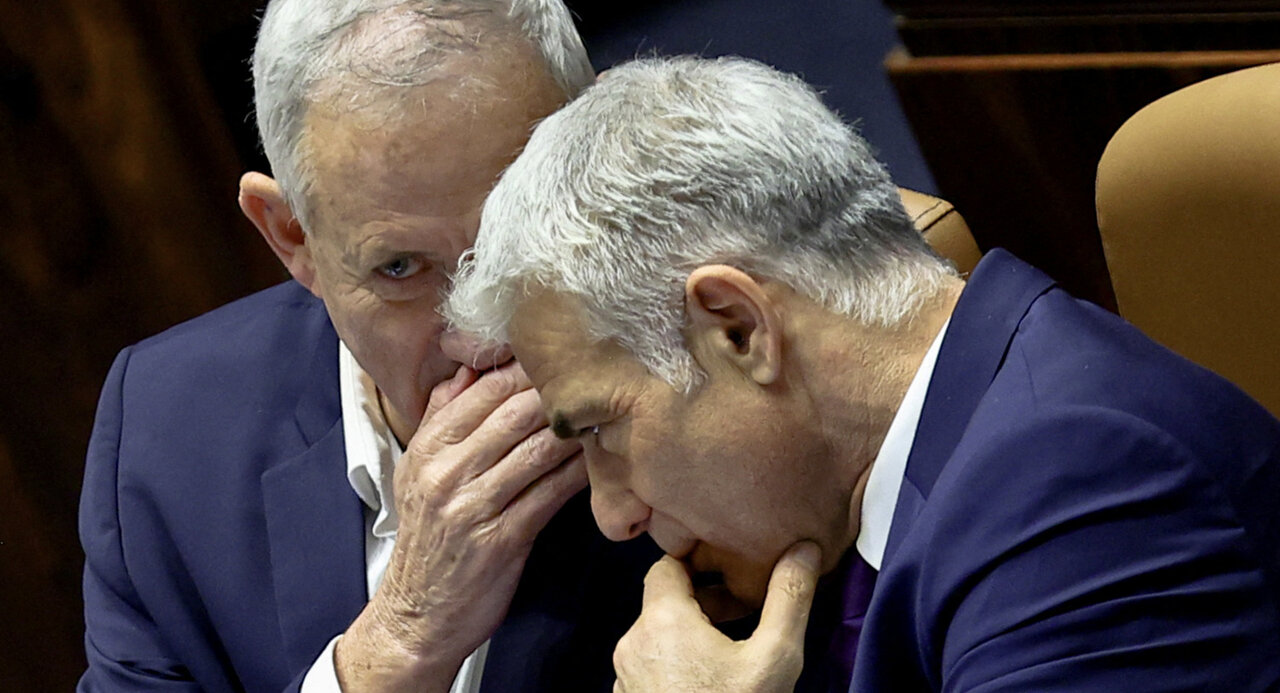Flares and fallout: Israeli officials lock horns over military failures

TEHRAN- The recent firing of a pair of flares at Prime Minister Benjamin Netanyahu's private residence in Caesarea has highlighted growing divisions among Israeli officials.
Israeli police have made arrests in connection to the incident that occurred on Saturday evening.
Netanyahu and his family were not home when the flares were fired.
Both Netanyahu’s domestic proponents and opponents have condemned the incident.
However, the weekend’s event pit them against each other in the face of the Netanyahu regime’s military and intelligence failures as well as his now-shelved controversial judicial reforms.
Netanyahu, known as Bibi, remains under fire for failing to prevent the Al-Aqsa Storm Operation, a surprise military attack that was carried out by Hamas on October 7, 2023. The operation humiliated Israel and shattered the image of the regime’s invincibility. More than 1,100 people were killed in the attack that was conducted in southern Israel and about 250 others were taken captive. Hamas freed more than 100 captives following a swap deal in November last year.
Netanyahu has faced growing pressure for failing to secure the release of the remaining captives, although a significant number of them is believed to have died in Israeli strikes on Gaza.
An Israeli cabinet minister says Benjamin Netanyahu’s opponents are attempting to assassinate or plot a coup against him.Israel launched a war of genocide on Gaza following the Al-Aqsa Storm Operation. The Israeli army has so far killed nearly 44,000 Palestinians in Gaza but it has failed to eliminate Hamas, which is the regime’s main goal.
Netanyahu has turned a blind eye to huge domestic protests calling for an end to the war in a bid to pave the way for the release of the captives.
Prior to the Hamas attack, Netanyahu also faced significant pressure from demonstrators demanding his resignation due to the corruption charges against him and proposed judicial reforms.
Justice Minister Yariv Levin, the main supporter of Netanyahu’s judicial overhaul plan, said the firing of the flares was the latest “link in a chain of violent and anarchic actions, the purpose of which is to bring about the assassination of the prime minister and the overthrow of the elected government by means of a violent coup.”
The minister called for resuming the contentious judicial overhaul program.
Benny Gantz, a former general and leader of Israel’s National Unity party who resigned from Israel’s war cabinet in June amid deep rifts with Netanyahu, lashed out at Levin.
He warned on X, formerly known as Twitter, that the last time the judicial reform process was attempted it “brought disaster to the State of Israel.”
“The coup d’état led by Yariv Levin brought disaster to the State of Israel, tore us apart from the inside and was a large part of how we reached October 7.”
Gantz has indeed recognized that the Al-Aqsa Storm Operation inflicted significant damage on Israel.
Opposition Leader Yair Lapid also acknowledged that Hamas’ October attack has shaken the foundations of the Israeli apartheid regime.
Lapid said Levin “should go home because of his huge part in the failure of October 7 and not talk about legal reform.”
The opposition leader added, “He needs to go home along with this whole irresponsible government that brought upon us the greatest disaster in the history of the State of Israel. We will not allow him to turn the State of Israel into a non-democratic state.”
Lapid is among Israelis who has already called on Netanyahu to resign over his failed military strategies in the war on Gaza.
For now, the war of words between Israeli officials shows that huge domestic political cracks are developing in the wake of the regime’s setbacks on the Gaza battlefield.
The Netanyahu cabinet accuses the premier’s opponents of trying to assassinate or overthrow him. This is while Bibi’s opponents continue to blame him for the October 7 fiasco.
